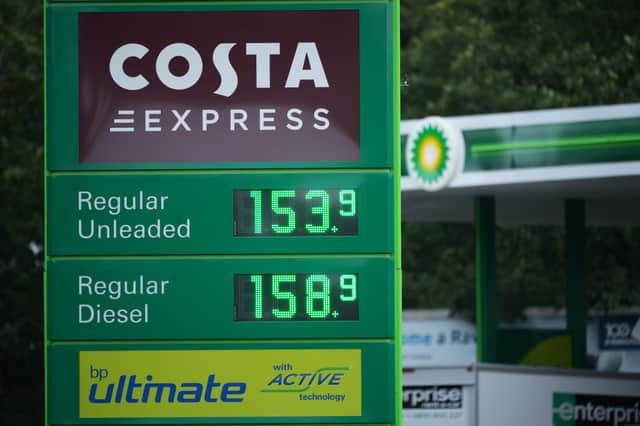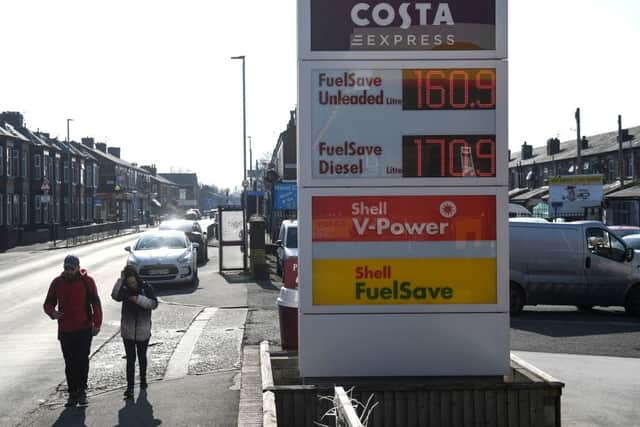Calls to cut VAT on fuel as petrol price predicted to hit £1.60 a litre


The Government has been urged to cut VAT on petrol and diesel as prices reached new record levels.
Motoring group the RAC predicts that petrol could hit an average of £1.60 per litre before the end of the week and diesel could exceed £1.65.
Advertisement
Advertisement
It has called on Chancellor Rishi Sunak to implement an immediate 5% cut on the tax to ease pressure on households and businesses facing spiralling costs.
The average price of a litre of petrol is now 156.37p, according to the RAC’s Fuel Watch service, with diesel averaging 162.28p.


VAT makes up around 16% of the price of a litre of fuel and the motoring group’s fuel spokesman Simon Williams said a cut in VAT from 20% to 15% would save drivers more than 6p per litre at current prices.
He commented: “Another day of record average pump price highs is putting petrol on a rapid journey towards 160p a litre and diesel to 165p. Given the speed of increases, drivers could unfortunately see this by the end of the week. And as these are averages far higher prices will be appearing on forecourt totems up and down the country.
Advertisement
Advertisement
“The Chancellor needs to act now to cut VAT to save homes and businesses from untold financial pain. A cut to 15% would save drivers 6.5p on petrol based on the current average of 156.37p whereas for diesel at an average of 162.28p the saving would be 7p a litre.
“Mr Sunak also needs to be prepared to go further if prices continue to rise as expected, after all it doesn’t seem fair that the Government’s coffers should benefit from the hike in the oil price while drivers suffer.
“Currently, around 26p a litre is going to the Treasury from VAT alone, so a cut to 15% would only take the tax take back to around 20p a litre which was broadly what was collected over the last three years.”
Fuel prices have rocketed over the last year and have increased on a nearly daily basis since the start of 2022.
Advertisement
Advertisement
Figures from the Department for Business, Energy and Industrial Strategy show that the increase between 28 February and 7 March was the sharpest in 18 years, with the average price of a litre of petrol rising from 149.2p to 153.0p on Monday, according its data. Average diesel prices rose from 153.4p to 158.6p.
A large part of the current rise is being blamed on the war in Ukraine, with fears over the security of oil supplies thought to be pushing up wholesale prices.
Yesterday, fuel giant Shell said it would stop buying oil from Russia - the world’s third largest oil producer - and would “withdraw from its involvement in all Russian hydrocarbons”, including its filling station and aviation operations in the country.
